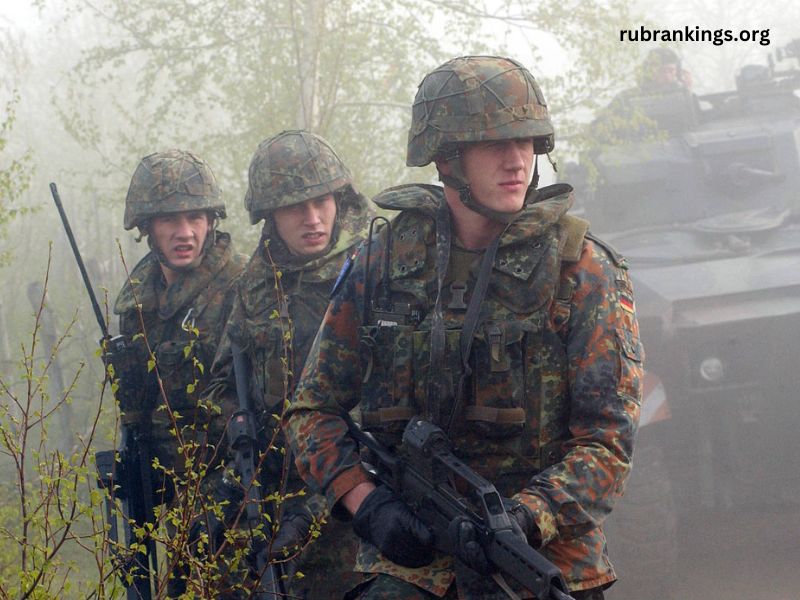The concept of “abandoned populations” is often used in discussions surrounding military history, particularly in relation to the German soldier during and after World War II. This term encompasses those individuals and communities left behind or neglected by their governments or military leadership. In this article, we will explore the dynamics of trust as it relates to the German soldier, the societal implications of abandonment, and the lasting impacts on both individuals and populations.
The Context of Abandonment
Historical Background
World War II marked a period of unprecedented conflict that led to significant upheaval across Europe. The German military, known as the Wehrmacht, was involved in many atrocities, yet individual soldiers often found themselves caught in a complex web of duty, loyalty, and survival. The societal expectations placed on them were immense, and as the war progressed, many soldiers began to feel abandoned by their leaders.
The German soldier’s experience was not just shaped by battlefield conditions but also by the shifting political landscape and the growing disconnect between military command and the realities faced by troops on the ground. This disconnect led to a breakdown of trust—not only in their leaders but also in the institutions that were supposed to support them and their families.
The Aftermath of War
In the aftermath of World War II, Germany faced a profound crisis. Many soldiers returned home to find their communities devastated, their families fractured, and a society grappling with guilt and responsibility for the war’s horrors. The sense of abandonment was palpable. Soldiers who had fought bravely were often met with hostility or indifference, leading to feelings of isolation and betrayal.
The Dynamics of Trust
Trust in Military Leadership
Trust is a cornerstone of military effectiveness. Soldiers must believe in their leaders and the mission they are assigned to. During World War II, as the tide turned against Germany, many soldiers began to question the competence and motives of their superiors. Reports of unnecessary losses, mismanaged strategies, and propaganda that did not match the reality on the ground fostered a climate of mistrust.
This erosion of trust had practical consequences. Soldiers became less willing to follow orders unconditionally, which could lead to hesitation in combat situations and ultimately affect unit cohesion and effectiveness. The psychological toll was immense, as many grappling with the futility of their situation began to feel that they were being used as pawns in a larger game.
Trust among Soldiers
The bond between soldiers often becomes a vital source of support during difficult times. In the face of abandonment by their leadership, many German soldiers turned to each other for camaraderie and reassurance. This solidarity was critical for morale, as they shared experiences that were often traumatic and disheartening.
However, this trust was not always straightforward. Soldiers from different regions or backgrounds might have conflicting views about the war or their roles in it, leading to internal divisions. The complexities of trust among soldiers highlight the varied human experiences within the military, often overshadowed by the more monolithic narratives of wartime heroism or villainy.
The Impact on Families and Communities
The Home Front
The concept of abandonment extends beyond the battlefield to the families left behind. As men went off to fight, their families often faced economic hardships, emotional distress, and social stigma. Women had to assume new roles, managing households and businesses, while also coping with the absence of their loved ones.
The disconnect between soldiers and their families often deepened as the war progressed. Letters home might become less frequent, and the news of losses could create a rift of fear and uncertainty. Families found themselves abandoned not just by the soldiers at the front but also by a government that was increasingly consumed by the war effort and its own political struggles.
Post-War Reconciliation
After the war, the struggle for reconciliation began. Many soldiers returned home only to find their families and communities grappling with their own traumas. The emotional scars left by the war created a generation burdened with guilt and shame. In a society that was trying to rebuild, the trust that had been eroded during the war would not be easily restored.
In this context, the concept of trust became crucial for rebuilding communities. Efforts to integrate returning soldiers into civilian life were often met with suspicion. Questions of accountability and guilt loomed large, and many former soldiers felt alienated from the society they had fought for. This sense of disconnection can still be felt in various ways today.
The Role of Memory and Narrative
Shaping Public Perception
The narratives surrounding the German soldier have evolved over time, shaped by societal attitudes, political agendas, and collective memory. In the immediate aftermath of the war, there was a tendency to demonize the German military as a whole, while individual soldiers were often seen as mere cogs in a monstrous machine. This narrative neglected the complexities of individual experiences and the genuine feelings of abandonment many soldiers felt.
Over the decades, however, efforts have been made to humanize the German soldier’s experience. Literature, film, and scholarly work have contributed to a more nuanced understanding of the war, allowing for a reassessment of trust and abandonment. This shift has opened up dialogues about accountability, memory, and the need for healing.
The Importance of Dialogue
Engaging in dialogue about the experiences of German soldiers and their families can help build understanding and empathy across generations. As societies grapple with their pasts, discussions about trust, betrayal, and abandonment are vital. Acknowledging the complexities of these experiences can pave the way for reconciliation and healing.
Conclusion
The narrative of the German soldier during World War II is deeply intertwined with themes of trust, abandonment, and memory. As we reflect on this period, it is essential to recognize the multifaceted nature of these experiences. The soldiers who fought were not just faceless participants in a grand historical narrative; they were individuals grappling with loyalty, fear, and a profound sense of loss.
Understanding the dynamics of trust—both in military leadership and among soldiers—provides valuable insights into the human experience during times of conflict. Additionally, examining the impact on families and communities reveals the far-reaching consequences of war that extend well beyond the battlefield.
As we move forward, the lessons from this complex history can serve as reminders of the importance of empathy, understanding, and the need to address the scars left by conflict. By fostering dialogue and acknowledging the multifaceted nature of trust and abandonment, we can work toward a more inclusive and compassionate understanding of the past, ensuring that the experiences of those affected are not forgotten.



